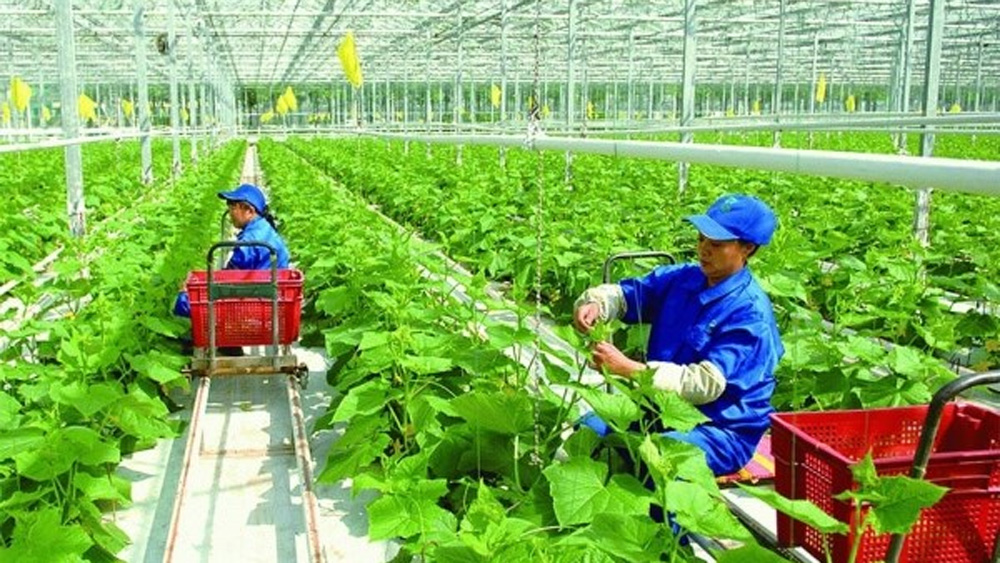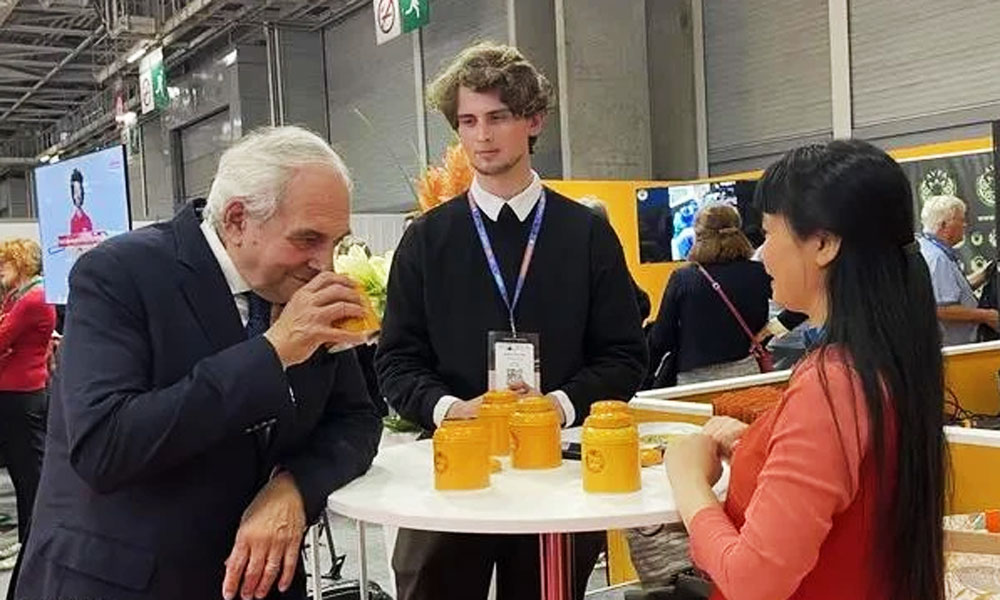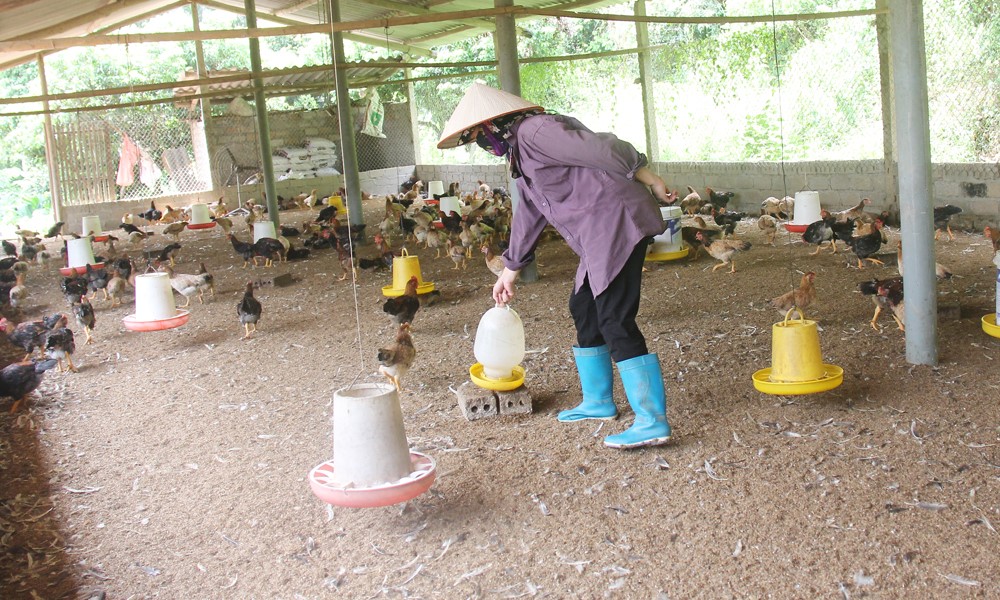Green production helps secure sustainable agriculture: Experts
At a rice processing factory of Vinh Binh Food One Member Company Limited in the Mekong Delta province of An Giang, about 50% of the total 16,000 tonnes of rice husk produced each year from the processing of 80,000 tonnes of rice have been used as fuel for rice drying. The remainder are pressed into husk firewood for sale.
 |
|
Illustrative image. |
By taking advantage of available rice husk, the factory has saved 30% of energy consumption for the rice drying process, while earning 3.2 billion VND (130,266 USD) from selling husk firewood each year.
Furthermore, ash from burned husk for rice drying can be used to fertilise fields and improve soil quality, reducing environmental pollution.
In fact, circular agriculture has been practiced by Vietnamese farmers for long, but with a small scale. However, as Vietnam has become one of the leading exporters of agro-forestry-aquatic products, the requirement of reusing agricultural waste and by-products has also increased.
Le Duc Thinh, Director of the Ministry of Agriculture and Rural Development (MARD)’s Department of Cooperatives and Rural Development, said that circular agriculture is a closed production cycle, where waste is reused as raw materials for production, thereby reducing negative impacts on the environment and protecting the ecosystem and people’s health.
Dr. Tran Cong Thang, Director of the Institute of Policy and Strategy for Agriculture and Rural Development, said that in order to develop circular economy in agriculture, it is crucial to promote science-technology research and application.
Currently, the country’s annual agricultural by-product amount is about 156.8 million tonnes, mostly from cultivation and breeding activities.
Tong Xuan Chinh, Vice Director of the MARD’s Department of Livestock Production, said that in order to sustainably, diversely and effectively use the huge agro-forestry-aquatic by-product resources, the State should provide comprehensive policies to provide optimal conditions for organic fertiliser production, while completing the legal conditions for organic and circular agricultural development, and supporting businesses and cooperatives, especially small and medium-sized enterprises. Greater investment in technology for organic fertilisers is also needed, he said.
Deputy Minister of Agriculture and Rural Development Phung Duc Tien said that as the rate of treated agricultural waste and by-products has been modest, in the coming time, Vietnam should work harder to promote circular economy in agriculture to better protect the environment and increase the added values of agricultural products, thus developing an agricultural sector towards green, modern and sustainable direction.
Source: VNA
 Bắc giang
Bắc giang
















Reader's comments (0)